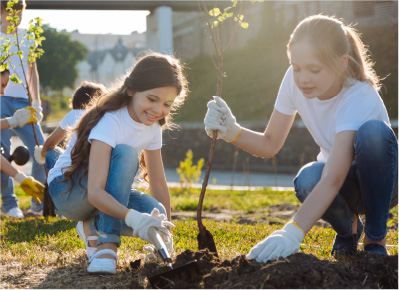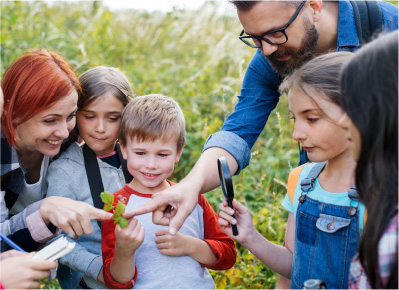How Community Gardens Empower Marginalized Youth: Cultivating Change Through Urban Agriculture
Publish Date: July 4, 2025 0:00
Community gardens are more than just plots of green—they’re transformative spaces that plant the seeds of empowerment in marginalized youth. These urban oases cultivate essential life skills, responsibility, and leadership, all while reconnecting young people with nature. But what exactly are the benefits of community gardening? How do these gardens empower marginalized youth? And which valuable skills are learned along the way? Today, we dig into these questions and more, exploring the dynamic intersection of urban agriculture for youth and community transformation.
In this post, we naturally weave in insights from trending queries such as “What are the benefits of community gardens for youth?”, “How do community gardens empower marginalized youth?”, “What skills do youth learn in community gardens?”, and “How does urban agriculture impact communities?” Our exploration is enriched with real-life examples and case studies, including inspiring case studies from Believe in Me’s own community initiatives.
Whether you’re a community leader, educator, or nonprofit organizer, prepare for a snappy ride through the colorful world of community gardening. With a nod to Believe in Me’s commitment to championing youth empowerment, we’ll show you how urban agriculture can nurture not only plants but also the vibrant potential of young people.
Overview: How Community Gardening Empowers Youth
Community gardens serve as fertile ground for youth empowerment by offering hands-on experiences in urban agriculture. They teach practical skills like planting, harvesting, and managing natural resources while instilling a sense of responsibility often missing in today’s digital world. By working together in these gardens, marginalized youth learn teamwork, problem-solving, and leadership, which are critical for their personal and professional growth.
For many, community gardening is a form of rebellion against an established order that has often overlooked their potential. It provides a safe, accessible space to experiment and fail, learn and succeed. Research from the National Institute of Food and Agriculture (NIFA) emphasizes that urban agriculture initiatives not only boost nutritional awareness but also improve social and emotional well-being among young people (National Institute of Food and Agriculture, 2025).
Frequently Asked Questions from Google Searches
- What are the benefits of community gardens for youth?
They offer hands-on learning, foster responsibility, improve social skills, and enhance mental and physical well-being through engagement with nature. - How do community gardens empower marginalized youth?
By providing a nurturing environment for personal growth, community gardens build confidence, instill leadership, and offer valuable agricultural and life skills. - What skills do youth learn in community gardens?
Youth learn urban agriculture techniques, teamwork, problem-solving, environmental stewardship, and often, entrepreneurship. - How does urban agriculture impact communities?
Urban agriculture not only beautifies neighborhoods and improves access to healthy food, but it also strengthens community bonds and fosters civic participation.
Case Studies of Successful Youth Programs
Real-life examples reveal the profound impact of community gardens on marginalized youth. Here are two standout programs that highlight the tangible benefits of urban agriculture.
Case Study 1: Green Thumbs Rising
Green Thumbs Rising is a youth-led community gardening initiative that has been transforming lives in urban neighborhoods. Partnering with local schools and nonprofits, the program teaches participants everything from seed germination to composting. One participant, Jamal, initially struggled with academic and social challenges, but after joining the program, he became a leader in his garden group, even organizing a local produce market.
This initiative not only provides hands-on training in sustainable agriculture but also nurtures self-esteem and leadership. Programs like these are featured on platforms such as Believe in Me, where passionate advocates work to empower youth through similar community-based projects.
Case Study 2: Urban Seeds Initiative
Another inspiring example is the Urban Seeds Initiative, which focuses on merging urban agriculture with educational programming. Participants are taught practical gardening skills alongside classes on environmental science and nutrition. A notable success story is that of Maria, who used her newfound expertise to start a community-supported agriculture (CSA) program, championing local produce and sustainable practices.
Maria’s transformation from a disengaged student to an empowered community leader highlights the potential of urban agriculture for youth. Her story has resonated across social media and community channels, echoing the core values of Believe in Me’s mission to foster youth empowerment and resilience.
The Role of Community Gardening in the Community
Community gardens are more than just spaces to grow food; they are catalysts for social change. They serve as communal hubs where elders, youth, and community members converge, share knowledge, and foster intercultural dialogue. Such interactions break down social barriers and create inclusive environments that cultivate mutual respect.
Beyond beautifying urban spaces, these gardens promote environmental stewardship and create green sanctuaries in concrete jungles. According to research shared on Edutopia, engaging youth in community gardening promotes academic achievement, improves mental health, and even reduces behavioral issues (Edutopia, 2024). This dual impact of personal transformation and community enhancement makes urban agriculture a uniquely effective tool for social empowerment.
At Believe in Me, we echo this sentiment by integrating community gardening projects into our broader youth empowerment initiatives. We believe that cultivating responsibility goes far beyond the garden bed—it’s about nurturing hope, fostering community resilience, and providing a space for meaningful dialogue.
Actionable Ways to Get Involved
So, how can you help empower marginalized youth through community gardening? Here are some actionable steps to take:
- Join a Community Garden Program: Look for local initiatives or consider partnering with organizations like Believe in Me to launch your own youth-led garden project.
- Volunteer Your Time and Skills: Whether you’re an experienced gardener, educator, or community organizer, your expertise can inspire and guide future leaders.
- Donate Resources: Your financial support can provide tools, seeds, and educational materials needed to sustain these empowering programs. Remember, every donation plants a seed of success.
- Advocate for Urban Agriculture: Leverage your social media platforms and community networks to raise awareness about the benefits of community gardens and urban agriculture for youth.
- Attend Workshops and Events: Actively participate in community workshops and events to learn new skills, meet like-minded individuals, and connect with the programs driving change.
Implementing these solutions not only benefits the youth directly involved but also reinforces a broader commitment to building resilient, self-sustaining communities. After all, every thriving garden begins with a single seed—just as every empowered youth begins with a single opportunity.
Conclusion: Cultivate a Future with Empowered Youth
The undeniable benefits of community gardening for youth extend beyond the physical garden. These initiatives spark creativity, instill valuable life skills, and nurture leadership qualities that are critical for personal and community success. Through the lens of urban agriculture for youth, we see how cultivating plants and fostering responsibility go hand in hand.
At Believe in Me, we’re committed to creating opportunities where youth can grow, lead, and reclaim their futures—one garden at a time. As you reflect on the transformative potential of community gardening, consider joining our youth-led initiatives. Your involvement can help us recruit 15 participants for our next phase of community gardening programs within the next three months.
Now is the time to roll up your sleeves and get your hands in the soil. Whether you volunteer, donate, or simply spread the word, every action counts in cultivating change and empowering our future leaders.
Citations: National Institute of Food and Agriculture, “Urban Agriculture and Youth Development.” NIFA, 2025, https://www.nifa.usda.gov/; Edutopia, “Urban Agriculture in Education: Empowering Youth Through Gardening.” Edutopia, 2024, https://www.edutopia.org/.
Get to know more about Believe in Me and Help a Kid Today
References
National Institute of Food and Agriculture, “Urban Agriculture and Youth Development.” NIFA, 2025, https://www.nifa.usda.gov/; Edutopia, “Urban Agriculture in Education: Empowering Youth Through Gardening.” Edutopia, 2024, https://www.edutopia.org/.







